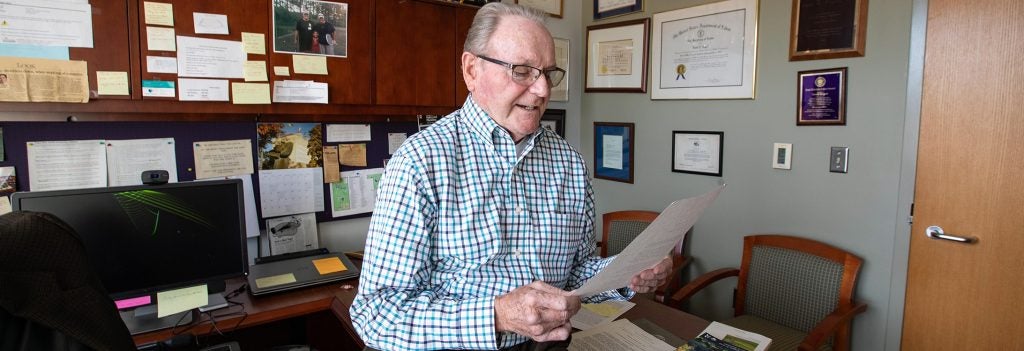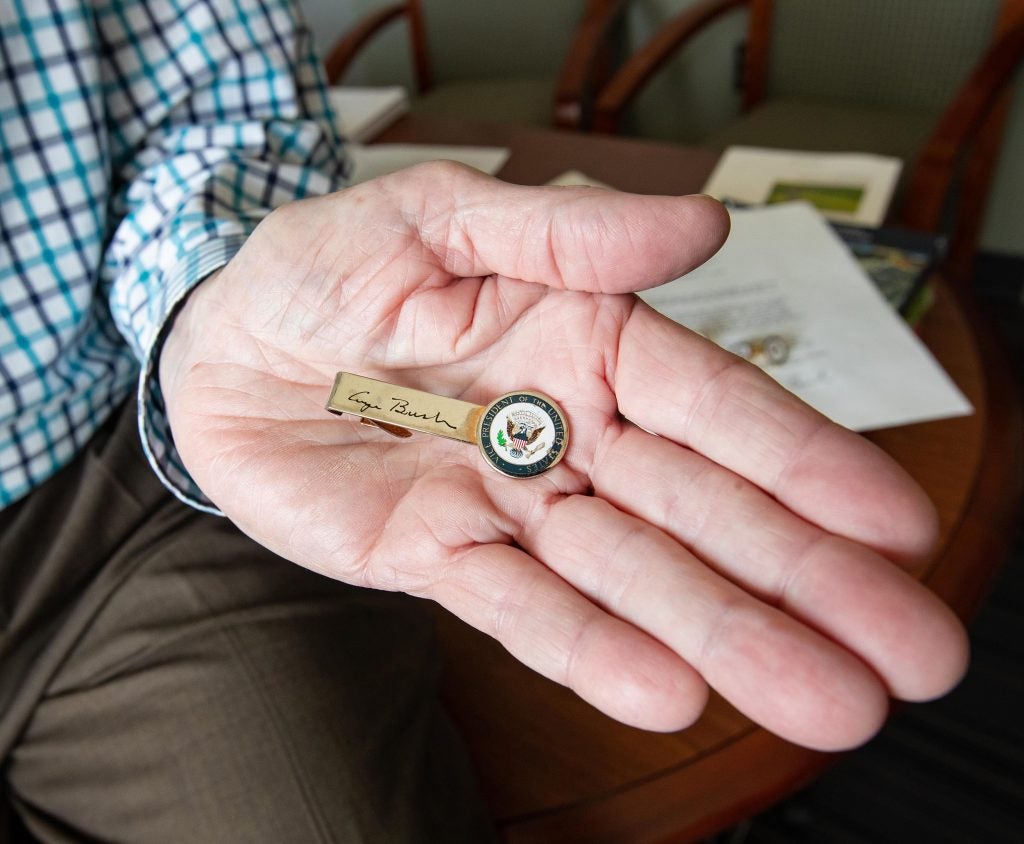A one-on-one meeting with then-vice president George Herbert Walker Bush
ECU’s Dr. David Edgell shares his memories of a private meeting he had with President George H.W. Bush when he served as vice-president under President Ronald Reagan. Edgell is a professor of hospitality leadership in the College of Business’ School of Hospitality Leadership and worked for the U.S. Department of Commerce in the late 1980s.

ECU Professor Dr. David Edgell, former senior executive director of U.S. Travel and Tourism Administration, reads from the prepared statement that he read on behalf of Vice President George H. W. Bush to attendees of the International Conference of Tourism in the 1990s. (Photos by Rhett Butler)
In the spring of 1986 I was invited by the Deputy Chief of Staff for Vice President George H. W. Bush to a meeting with the vice president in the Eisenhower Executive Office Building across from the White House. At the time, I was a young executive in the U.S. Department of Commerce working on trade and tourism policies. I anticipated that the meeting would include several individuals but learned, to my surprise, it was a one-on-one meeting with the vice president to discuss, among other topics, trade and tourism policies. Naturally, I was both awed and excited but was quickly put at ease by the Vice President Bush’s friendly and warm demeanor. I was a bit nervous and anxious, but he set me at ease. I also remember the informality of the meeting such that I almost forgot to whom I was speaking. Vice President Bush was aware of my role in helping to develop and work toward passage of the National Tourism Policy Act of 1981 (it was the third piece of legislation signed Oct. 16, 1981, by President Ronald Reagan).
My conversation with the vice president gradually moved toward a discussion of trade and tourism relations with Canada where the United States had a trade office in Ottawa and a regional tourism office in Toronto. At that time, the U.S. had an excellent working relationship with Canada on trade and tourism policy matters. Shortly after this meeting, I was asked to work on a special trade in tourism agreement titled “A Cooperative Tourism Research Agreement Between the Government of Canada and the United States of America” which was signed for the U.S. by Vice President George Bush June 11, 1986, in Vancouver, Canada. To my delight, the Vice President’s Office prepared a glass-framed official copy of the “agreement,” including the pen the vice president used to sign the “agreement,” and then presented it to me (it proudly occupies a special wall in our home).
The tourism research agreement became somewhat of a precursor to the “Canada-United States Free Trade Agreement” (FTA) signed for the United States by President Ronald Reagan Jan. 2, 1988. The FTA, for the first time in U.S trade agreement history, included provisions on the “services industry.” The FTA laid the groundwork for the “Tourism Policy and Export Promotion Act of 1992” signed by President George Herbert Walker Bush on Sept. 30, 1992, and the “North American Free Trade Agreement” (NAFTA) which included the United States, Canada and Mexico. NAFTA was signed by U.S. President George H.W. Bush, Canadian Prime Minister Brian Mulroney, and Mexican President Carlos Salinas de Gortari Dec. 17, 1992.
At the ECU’s College of Business, we build leaders. VP Bush, in my view, had excellent leadership qualities. He was certainly a committed public servant having served as a congressman, ambassador to China, head of the CIA, etc. He was both a good communicator, listener and innovator. In short, he was a good decision-maker.
-by Dr. David Edgell, professor of hospitality leadership
